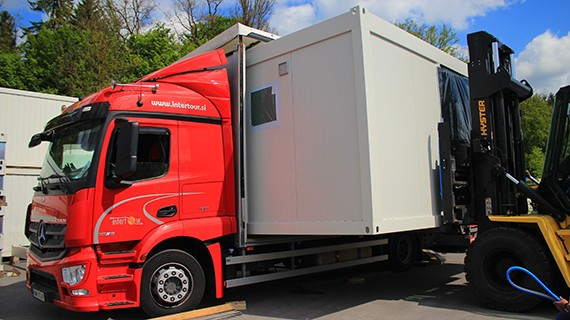Modular construction companies
Modern living is characterized by the speed with which we make our choices regarding everyday life. Especially working and living conditions are changing rapidly, also as a matter of days or weeks. It is now customary to change jobs or move countries, even several times during the course of one's life. Under these circumstances, it is normal that businesses need to adapt to the demands of the market, making it a success story if they can achieve flexibility and variability needed. This is why traditional construction methods and materials are now increasingly being swapped for different construction types. This is ever more customary in the developed world, where different population groups are getting ahead on the property ladder and can tap into more affordable housing. At the same time, the less developed countries can profit from the trend in their own right, making construction of living and working spaces much more affordable. High quality construction with reusable materials at acceptable prices can be ensured by the growing trend in modular housing.

The western consumer is turning away from fixed property ownership
Research shows that the trend is growing whereby users turn away from ownership of fixed property, like real-estate, cars or luxury items, more towards experiences and individual freedom. This is in line with the value chain of millennial customers, which is an increasingly important group in spending power and determining lifestyle tendencies. Renting instead of buying, car sharing and renting electrical bikes are just some examples of so-called collective ownership, which denotes groups with loose boundaries, making use of goods in random and changeable patterns. It is not unusual for millennial users to choose the brand of their dog food based on ethical choices the producer makes. Price is not the only determining criterion anymore, as younger consumers value personal freedom and integrity. This, together with the diminishing importance of material goods, is a trend in the direction of modularity and adaptability that allow for changeable habits and behaviour. It is increasingly observed that while values remain, behaviour change, and this is increasingly true for younger generations. Values of the industrialized era and the post-war generation are being transformed less into tangible assets and more into identity of experiences.
Trends in adaptability and variation visible also in real-estate
While property ownership levels vary in different countries and in some, e.g. Scandinavian cultures, is not high on the value ladder, it has been traditionally considered as the marker of wealth and traditionally aspired to. Nowadays we can observe that through more people having access to property ownership, on the one hand the need for modularity and variability in construction styles and methods, as well as design, determines the consumer patterns and as a consequence also developments in the construction market. A second factor affecting this trend is also the moving habits of people. Nowadays it is not unusual to move countries due to a project or change jobs to seek adventure, join a partner or live in friendlier surroundings. Due to all of these factors, the traditional building methods and types are changing. Modular construction companies are proposing several processes, geared towards maximum flexibility and adaptability, also on business-to-business relations. The assurance of quick, safe and adaptable modular units is complemented by the fast and collaborative reactions of business players. This is why the modular construction process is a way of constructing property, which allows for parallelism, synergies and cooperation between actors.

Migration: final trend in moving towards more flexibility
When we compare the demographics in European or global levels we notice the ageing population and the longer life-spans. It is inevitable that migration, no matter the degree of regulation that it will have, will affect future living and working conditions. It is already clear that we are moving much more towards less-regulation in employer-employee relation, which can not become a battle on social rights. Once the right working conditions are ensured it is possible to work in relatively loose structures, without affecting social rights, but ensuring flexibility of working and licing conditions. Again, this could benefit some people, looking for more freedom and flexibilty in project-based work. Moreover, moving towards modular construction processes could be a reply to the fluctuations in workforce and climate conditions, allowing more adaptability and fast replies to the changing demands. While in the developed world the focus will be on constructing the modular buildings to host migrants and mobile workers, they could also be used for purposes such as refugee camps or construction of education and health facilities in the crisis-struck areas or developing countries.